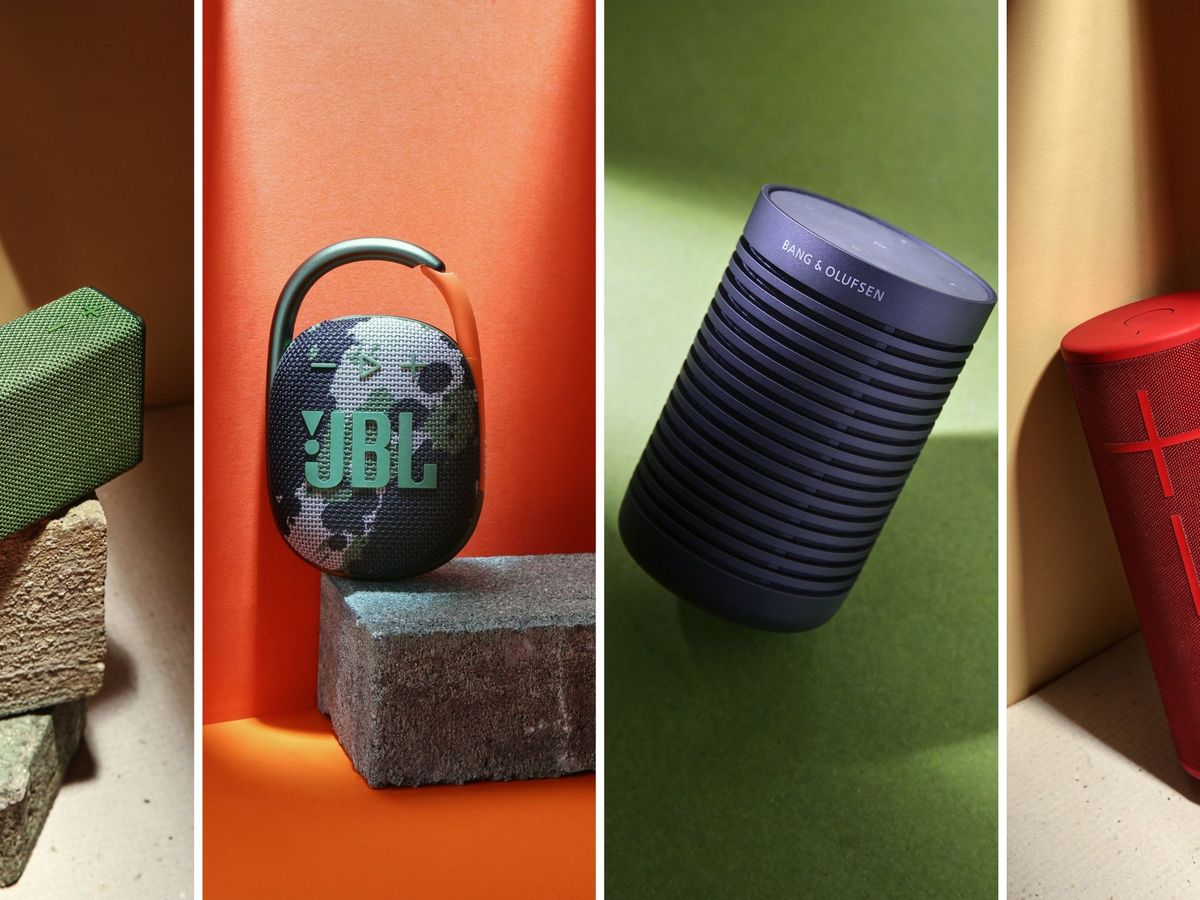
Amazon.com: Mini altavoz Bluetooth de conducción ósea Altavoz inalámbrico portátil con sonido de graves estéreo, Altavoz portátil creativo, reproductor de música de tamaño mini para el hogar, al aire libre, viajes (negro) :

VULKKANO Blast XL - Altavoz Bluetooth Potente Grande 60W - Altavoz inalambrico Portatil con Bluetooth 5.0, 20H de Batería, Tecnologia TWS, USB-C, Carga Rapida, AUX : Amazon.es: Electrónica

Amazon.com: MIATONE Altavoces Bluetooth portátiles con luces, altavoces inalámbricos con potentes graves y subwoofer, IPX7 impermeable, Bluetooth 5.3, tiempo de reproducción 24 horas, altavoz portátil TWS para fiesta, al aire libre, camping,

Amazon.com: Altavoces Bluetooth inalámbricos portátiles con radio FM, subwoofer, reproductor de MP3, control remoto, AUX, altavoz de fiesta de graves ricos, sonido estéreo transparente, altavoces de escritorio para el hogar, para teléfono,

ELEHOT-Store Altavoz Bluetooth Potente Portatil con Luz LED de 5 Modos Altavoces Bluetooth Inalambricos Recargable USB apoya TF Card/Memoria USB de 32G Altavoz Portatil Estereo, Verde : Amazon.es: Electrónica

Tronsmart Bang Altavoz Bluetooth 60W, Luces Led y Waterproof IPX6, Sincroniza más de 100 Altavoces Potente con Hi-Res Audio, 15 Horas de Reproducción, Exterior Fiesta Speaker con Powerbank y NFC : Amazon.es:

Amazon.com: Altavoz Bluetooth, mini altavoz Bluetooth portátil con 2.5 horas de reproducción, pequeño altavoz inalámbrico con cordón para ducha, bicicleta, viaje en coche (rosa) : Electrónica

Amazon.com: SOUNDSTREAM ICON - Altavoz Bluetooth pequeño y potente portátil (inalámbrico) con IPX7 impermeable, amarillo (Royal Yellow) : Electrónica

INSUMITE Altavoz Bluetooth Mini Portatil.Ideal para teléfono móvil.pequeño, Inteligente,Reproductor mp3, con Ranura USB,Micro SD,Color Metalizado Muy Elegante : Amazon.es: Electrónica

Amazon.com: SOUNDSTREAM ICON - Altavoz Bluetooth pequeño y potente portátil (inalámbrico) con IPX7 impermeable : Electrónica

Amazon.com: COMISO Altavoz Bluetooth portátil, pequeño altavoz inalámbrico de ducha 360 HD, sonido fuerte, emparejamiento estéreo, impermeable, tamaño de bolsillo pequeño, soporte de micrófono integrado, tarjeta TF para viajes al aire libre,

Amazon.com: Altavoz Bluetooth portátil, altavoz al aire libre, mini altavoz inalámbrico impermeable IPX5, Zealot S32 hasta 12 horas de reproducción, emparejamiento estéreo, tarjeta MIC/TF/USB/AUX para hogar/exterior competible para iOS Andriod negro :

Amazon.com: SOUNDSTREAM ICON - Altavoz Bluetooth pequeño y potente portátil (inalámbrico) con IPX7 impermeable : Electrónica
![Amazon.com: PunkCase Altavoz Bluetooth inalámbrico portátil, potentes altavoces HD con ranura para tarjeta TF/SD de graves mejorada/entrada AUX, altavoz manos libres recargable con micrófono compatible con iPhone/Android Rocker [Rosa] : Electrónica Amazon.com: PunkCase Altavoz Bluetooth inalámbrico portátil, potentes altavoces HD con ranura para tarjeta TF/SD de graves mejorada/entrada AUX, altavoz manos libres recargable con micrófono compatible con iPhone/Android Rocker [Rosa] : Electrónica](https://m.media-amazon.com/images/I/617rPZFIIhL._AC_UF894,1000_QL80_.jpg)
Amazon.com: PunkCase Altavoz Bluetooth inalámbrico portátil, potentes altavoces HD con ranura para tarjeta TF/SD de graves mejorada/entrada AUX, altavoz manos libres recargable con micrófono compatible con iPhone/Android Rocker [Rosa] : Electrónica

Amazon.com: Mini altavoz Bluetooth inalámbrico portátil, AICase Super Bass estéreo recargable con luces LED : Electrónica

Amazon.com: Speaqua - Altavoz Bluetooth impermeable con abridor de botellas - Altavoz Bluetooth pequeño (tamaño de bolsillo) - Pareamiento de altavoces Bluetooth dual - Accesorio de playa - Altavoz portátil Cruiser H2.0

Amazon.com: Prosonic BT3 Altavoz Bluetooth inalámbrico portátil con sonido estéreo de 10 W y aumento de graves - Sonido rico y graves intensos - Bluetooth 5.0 - Micrófono - IPX5 en y altavoz exterior (azul) : Electrónica

5 centímetros de alto y menos de 22 euros: así es el potente mini altavoz que está arrasando en Amazon | GQ España

Amazon.com: EDUPLINK Altavoces Bluetooth portátiles impermeables de tamaño pequeño, sonido fuerte volumen de hasta 12 horas para ducha, playa, piscina, amado por los niños (rojo) : Electrónica

MiLi Pequeño Altavoz Bluetooth magnético portátil, Compatible con Magsafe do iPhone 12/13, Mini Altavoces Bluetooth móviles, Altavoces inalámbricos potentes, para Todos los teléfonos(Rojo) : Amazon.es: Electrónica

Amazon.com: ALLWAY Mini altavoces Bluetooth, pequeños altavoces Bluetooth portátiles inalámbricos con sonido estéreo fuerte, graves ricos, puerto de tarjeta TF, rango Bluetooth 5.0 de 164 pies para laptop, MacBook Pro, iPhone, eco,




